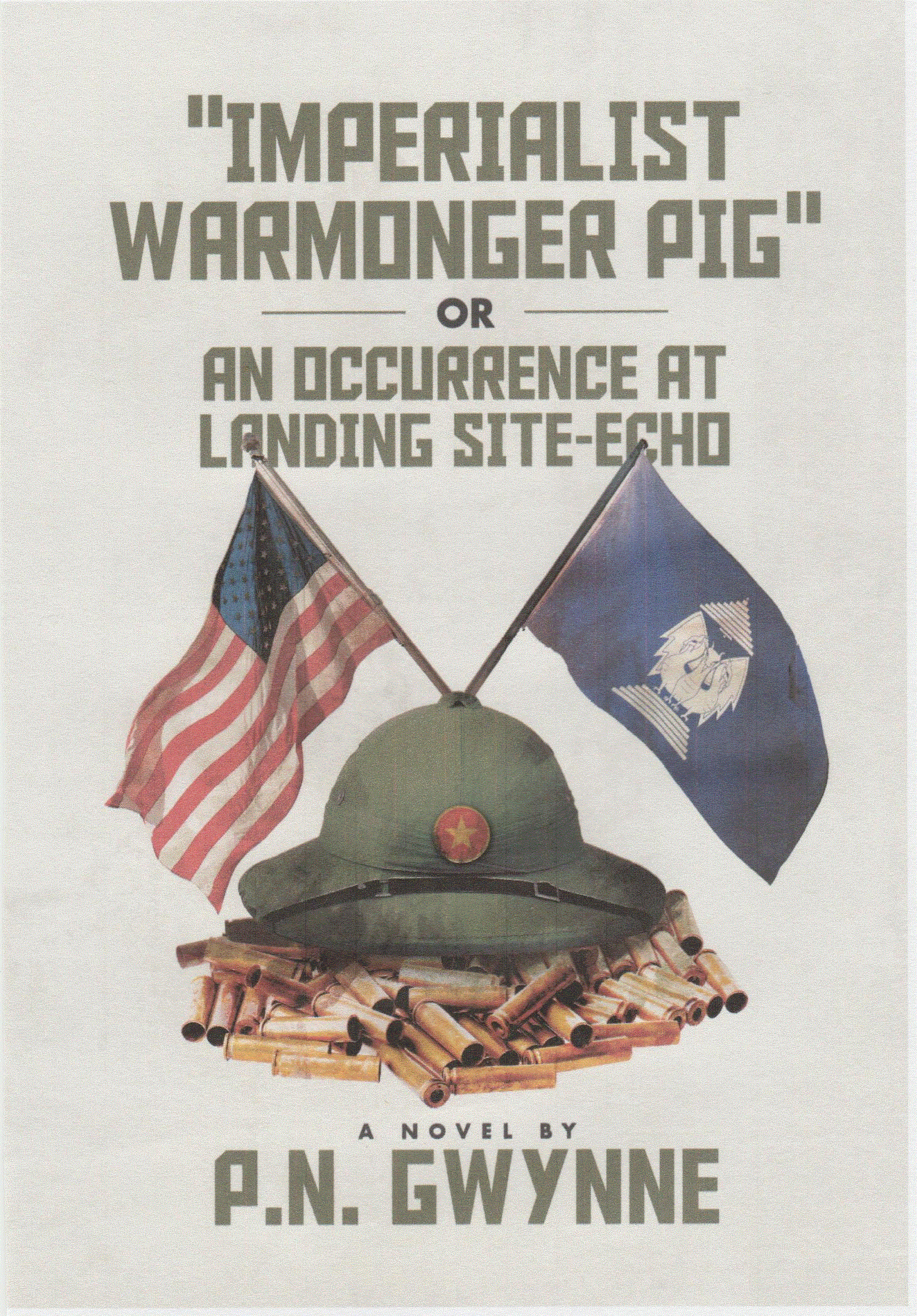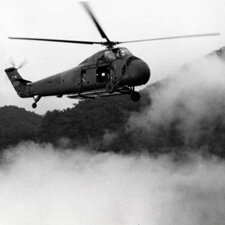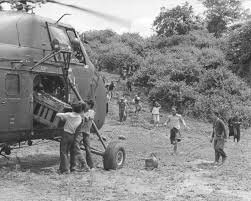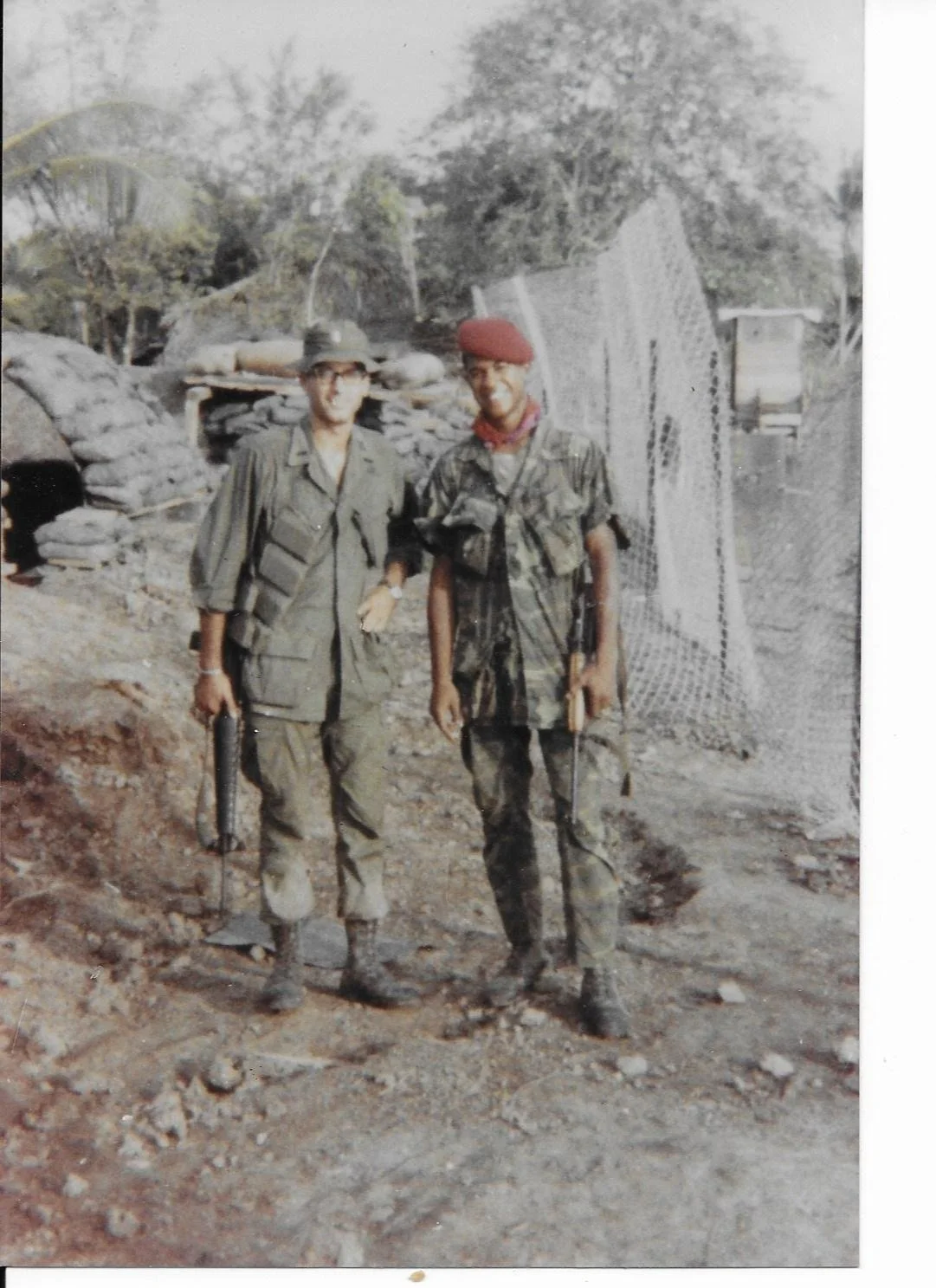(from page 81):
Somehow, later that night, the very drunk and by-now thoroughly soul-weary Henderson had transferred his sorry self from his marooned Alpha Romeo to a turquoise aluminum-and-vinyl lawn chair, and downed a half-empty glass of some goddawful something he’d found under a table, possibly even ingesting a cigarette butt in the process. Emotionless. Numb. Tired, boy. His unseeing eyes looking right through whatever odd human body moved through their unfocused field of vision.
At that precise moment – 0409 hours – he decided to join up. The Marines or the Army, he didn’t care which.
Three reasons:
1/ There wasn’t anything else he even remotely felt like doing;
2/ He’d always kind of wondered how he’d shape up in combat, getting shot at and shooting at people and all the rest of it;
and 3/ To find out fucking once and for fucking all about this whole fucking Vietnam business, which had been busting everybody’s aching asses for so fucking long – he’d really had it up to here with all the radical loonies raving about The Beast Amerika.
Thus satisfied at having finally determined his immediate future, he passed out in the lawn chair.
(from page 216):
Henderson stood there, resisting the instinct to salute, as the guy wasn’t in uniform. After a small pause, the other man, presumably Col. Helios, half-rose, stuck out a paw to be shaken, and said,
“So you’re Henderson. The latest ‘Contingency’ body.”
“Yes sir. Yes sir to the first, and I guess so to the second.” Latest?
Hand-shake concluded, Helios re-sat himself. “Silver Star, I understand. That ain’t beanbag – good work, son.”
“Weeeell, i– ”
“ ‘Well’ nothing. I don’t have one – damn near none of us have one. You must’ve done something.” The tone of his voice wasn’t such as to invite further comment.
The fellow now reached into a drawer and, for a moment there Henderson half-expected him to pull out a pistol. But instead he emerged with, of all things, a business card, which he handed over.
“I’m Colonel Helios, take a seat, lieutenant.” (He pronounced it “Hell-ios”.)
There’s wasn’t anywhere immediately obvious for Henderson to park his ass, and while Miss Blips procured a black plastic folding chair for him, he looked at the card:
Colonel George Xaire Helios
US Army Special Forces (Airborne) Command
Special Requirements Division
“Special requirements” for exactly what was, needless to say, not only not made clear, but not even hinted at...and anyway seemed rather beside the point, actually, just at the moment.
“Lieutenant, your name, along with your file, has been referred to us – never mind by who – and we’ve been holding it while we waited for a slot to open up, a slot where we feel you might be able to be of further use to your country.” He paused, for no apparent reason other than perhaps an imagined dramatic one. “But first you’d have to sign on for another three years of active duty. On the other hand, you’d be promoted to captain upon re-upping, and I can tell you that the slot in question is a very interesting one.”
Praise for IMPERIALIST WARMONGER PIG:
“I highly recommend ‘Imperialist Warmonger Pig.’ A GREAT READ for anyone who ever served in Indochina, especially Laos.” — DR. CHIP BECK, retired Navy Commander, career CIA Clandestine Service Officer and award-winning cartoonist and combat artist.
“As an intelligence gatherer in Laos in early 1971, this story not only rings true, but brings back some vivid memories. Gwynne's novel accurately portrays the immortal frivolity of youth and the deadly hostilities in which our nation was involved a half-century ago. This may be a work of fiction, but it’s ‘the real deal’.” — GORDON EVANS, Captain, USMC 1965-1974
"P.N. Gwynne is politically incorrect to the max, but his entertaining novel certainly captures the sense of what it was like in Southeast Asia during the late 1960's and early 1970's for at least some of the 'Secret Warriors.' He tells with great authenticity the story of a young First Lieutenant at a remote fire base in Vietnam who then goes on to even greater danger when he is assigned to the Secret War in a nearby country.” — BRIAN J. O’CONNOR, CIA Senior Intelligence Service Officer, and former member of the National Intelligence Council.
“ ‘An Occurrence at Landing Site-Echo’ is part war novel, part coming of age story, part treatise on geo-politics. While it’s rooted in the social & political scene of the ‘60s, much of what Gwynne has to say about young Americans of that era resonates today. Perhaps even more strongly in some ways as the leftist politics Gwynne satirized are more aggressive than ever. Landing Site-Echo has moved from Laos to Portland, Minneapolis, Austin…. Who will hold back the tide of Communist aggression in 21st century America?” — “GOODREADS”, 14 July 2021
Praise for P.N. GWYNNE
“The author's sensibility, however disturbing, is always expressed with wit. Mr. Gwynne can write.” – THE NEW YORK TIMES
The author in the Mekong Delta in 1969 with his good friend and old OCS buddy, 1LT Tucker Smallwood — a “MATS” (Mobile Advisor Team) ARVN adviser (here in ARVN camo) who, not long after that picture was taken, was very gravely wounded, Smallwood eventually recovered and returned to America, via Japan, and became a celebrated singer, and stage and Hollywood actor.
The author with one of his “Rascal” teams of irregular (Hmong) troops, northern Laos, 1970. (The jaunty fellow on the right was Corporal Vang Kou — Henderson’s “Corporal Mekki”)







